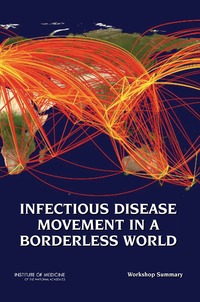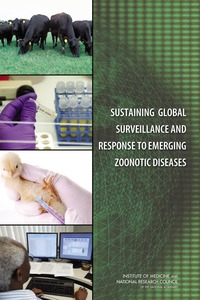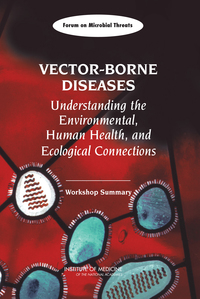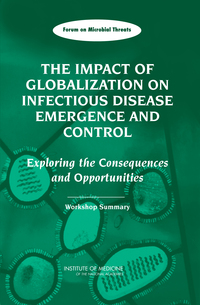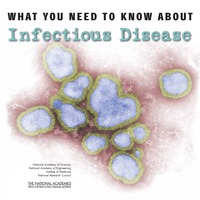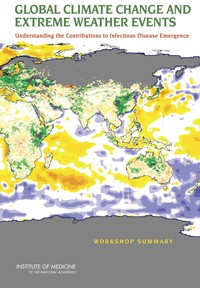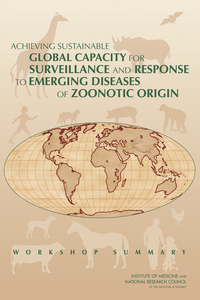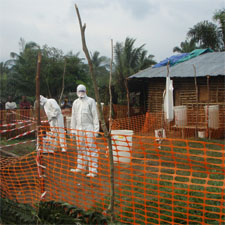
This photo shows MSF (Médecins Sans Frontières) health staff in protective clothing constructing perimeter for an Ebola isolation ward.
The Ebola outbreak in West Africa has killed more than 670 people and spread to four countries. The disease has no vaccine and no specific treatment. It has a fatality rate of at least 60%. What do we know about infectious diseases, and what can we do to monitor and prevent their spread? Reports of the Institute of Medicine and the National Academies are a great resource to understand the science that will be critical to resolving this crisis. All are free to download.
Infectious Disease Movement in a Borderless World: Workshop Summary
Modern transportation allows people, animals, and plants–and the pathogens they carry–to travel more easily than ever before. The ease and speed of travel, tourism, and international trade connect once-remote areas with one another, eliminating …
Sustaining Global Surveillance and Response to Emerging Zoonotic Diseases
H1N1 (“swine flu”), SARS, mad cow disease, and HIV/AIDS are a few examples of zoonotic diseases-diseases transmitted between humans and animals. Zoonotic diseases are a growing concern given multiple factors: their often novel and unpredictable …
Vector-borne infectious diseases, such as malaria, dengue fever, yellow fever, and plague, cause a significant fraction of the global infectious disease burden; indeed, nearly half of the world’s population is infected with at least one type of …
What You Need to Know About Infectious Disease
About a quarter of deaths worldwide–many of them children–are caused by infectious organisms. The World Health Organization reports that new infectious diseases are continuing to emerge and familiar ones are appearing in new locations around …
Long before the “germ theory” of disease was described, late in the nineteenth century, humans knew that climatic conditions influence the appearance and spread of epidemic diseases. Ancient notions about the effects of weather and climate on …
One of the biggest threats today is the uncertainty surrounding the emergence of a novel pathogen or the re-emergence of a known infectious disease that might result in disease outbreaks with great losses of human life and immense global economic …
